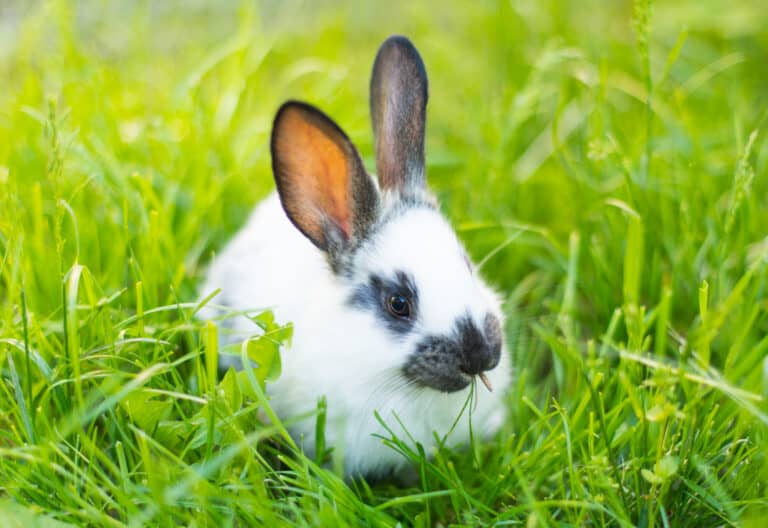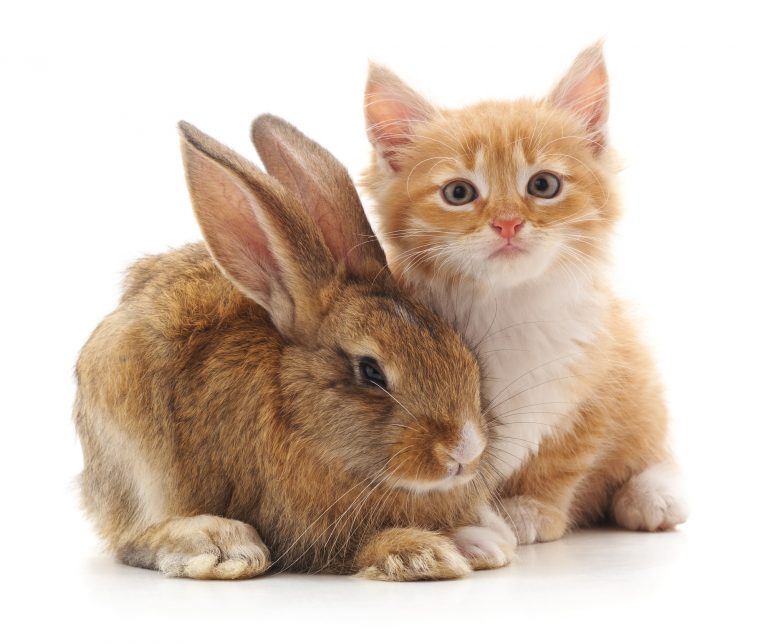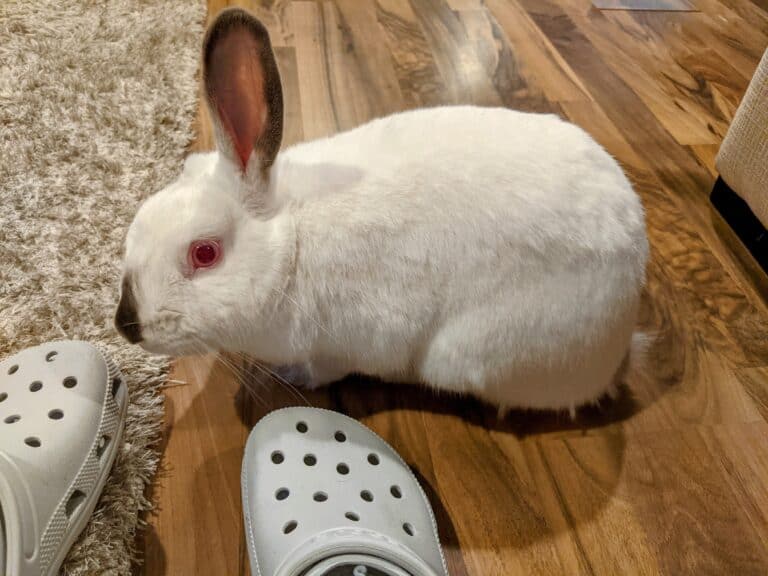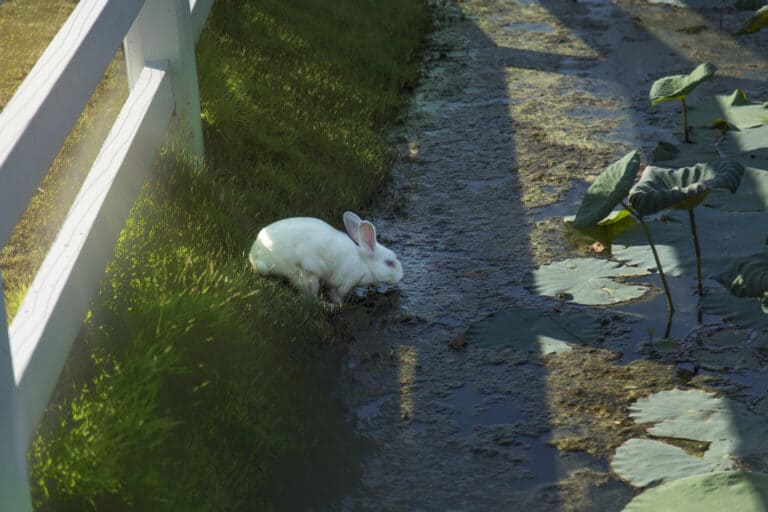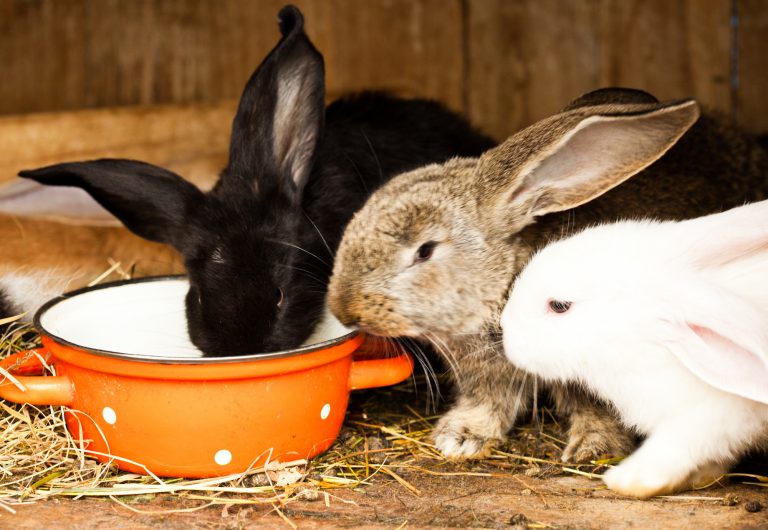Are Rabbits Nocturnal? Tips for Nighttime Activity
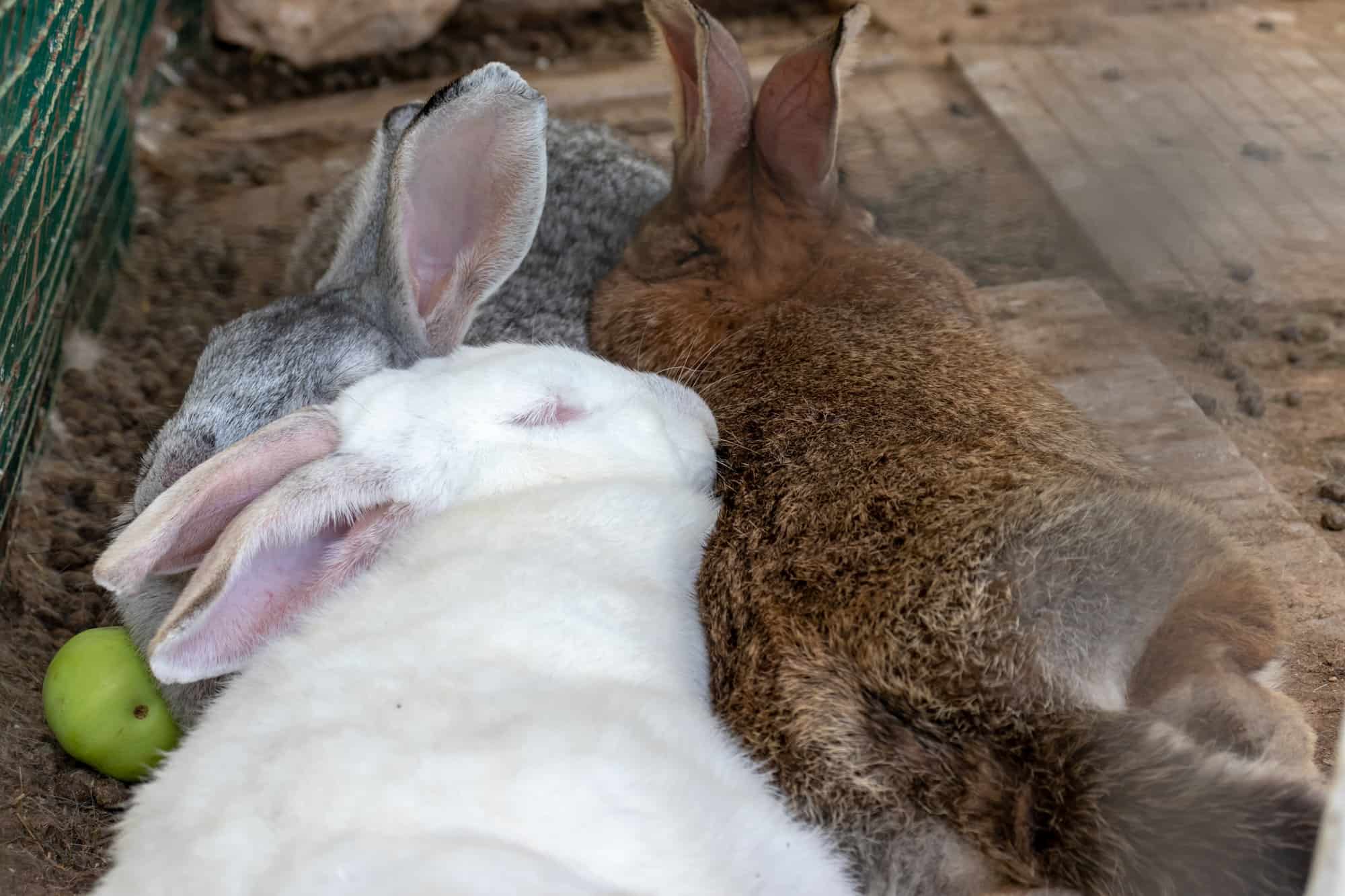
Do you see your fluffy bunny snoozing almost the whole day, coming fully alive only when the sun starts sinking in the horizon? This habit often leads many bunny parents to wonder if their furry companions belong to the type of creatures who prefer to sleep during the day and party at night. But are rabbits nocturnal, or do they fall under a different classification?
Let’s talk about rabbit sleeping habits and their daytime routine to find out, shall we?
A Rabbit’s Sleeping Schedule
Like humans, your pet bunny possesses an internal clock that governs his behaviors. This natural body clock tells his body when to eat, exercise, sleep, and play. Understanding how this internal rhythm works can help you take better care of your fur baby.
For example, you’ll know the best time of the day to feed or let him out of his cage for exercise or other fun activities. More importantly, knowing your rabbit’s behavior and activity level makes it easier to determine if your pet is sick or just plain sleepy.
Classification of Animals Based on Sleeping Schedules
Humans can be active at all hours of the day. Some work during the daytime, while others work in the middle of the night. Similarly, members of the animal kingdom have different daily schedules and spring into action during various periods of light and darkness.
Based on their wakefulness relative to the light-dark cycle, species fall under the following broad classifications:
- Nocturnal: awake at night and asleep during the day
- Diurnal: active during day time and resting at night
- Crepuscular: busy periods occur during twilight hours of dawn and early evening
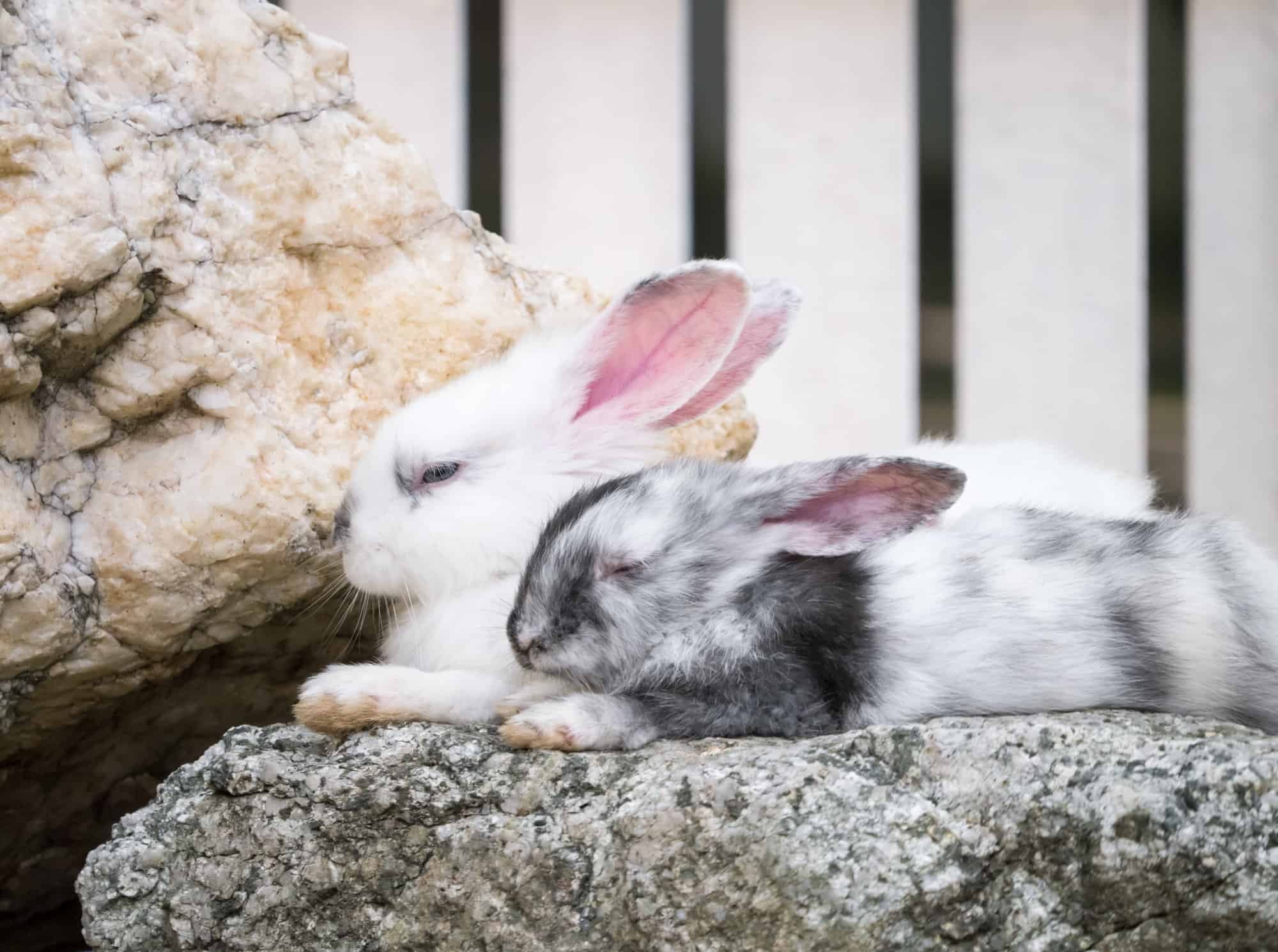
Are Rabbits Nocturnal?
You might think your rabbit is nocturnal because you see your pet bunny snoozing in the late morning or middle of the day and becoming active as the sun sets. However, unlike their nocturnal buddies, rabbits don’t stay awake the whole night. At some point during the middle of the night, your pet will settle down and fall asleep, something actual nocturnal creatures don’t do.
If rabbits aren’t nocturnal, what are they?
Based on the definition of diurnal, it’s obvious that your pet doesn’t fall under that classification either. This means rabbits are crepuscular animals.
What Does Crepuscular Mean?
Species that fall under this classification are not early birds or night owls. Instead, they’re most active during the twilight hours, when the sun is either rising or setting.
It doesn’t mean your house rabbit is only awake and active during those times. He also gets up and goes about at night or in the middle of the day. It’s just that he gets into high gear when the sun starts to set and in the early morning hours.
It’s interesting to note that crepuscular animals become more active during full moon nights or on those gloomy, overcast days when the natural light isn’t shining too brightly. This makes sense for rabbits because they can’t see very well in complete darkness and when their surroundings are exceedingly bright, like a constant light.
Reason Why Rabbits Are Crepuscular
Why do rabbits follow this habit of being alert during the dusky hours? As always, it has something to do with the species’ survival. Being active during these times gives bunnies the following advantages:
1. They Dodge Predators
Remember how rabbits are a prey species? This means other creatures see them as a food source. Now, most of their main predators get busy with hunting during the day or under the cover of darkness. Rabbits’ crepuscular behavior allows them to avoid both the nocturnal predators and the diurnal predators. This makes it safer for them to be up and about during the low light periods of dawn and dusk.
2. They Can Forage More Efficiently
The twilight hours provide a balance of some visibility and reduced exposure to predators, making it a more favorable time for rabbits to forage for food, like they would in their natural habitat. They can take advantage of available resources without compromising their safety significantly.
3. They Sidestep Scorching Temperatures
In the summer months, cooler temperatures occur during the morning hours and late evenings. Looking for food and indulging in other activities immediately before the sun rises or as it sets lets rabbits avoid the heat of the day. This helps them be more comfortable and conserve the energy they would otherwise lose from regulating their body temperature.
4. They Avoid Competition
Rabbits aren’t the only herbivores… others that consume seeds, vegetation, and fruits, are competing with rabbits for these food sources. Many of these are diurnal animals. By being up and about when many diurnal animals are less active, rabbits can reduce competition for food and resources. This is particularly beneficial in areas with high population densities.

When Do Rabbits Sleep?
Ever wondered how rabbits catch their Z’s? These gentle, hoppy beings have unique sleeping habits that set them apart from humans and other furry creatures
Rabbits Don’t Sleep Throughout the Day or Night
As crepuscular creatures, buns pick up the pace when the sun sits below the horizon. Called twilight hours, these typically occur between 4 to 7 am and 6 to 9 pm. However, rabbits don’t spend the entire day or night sleeping. They still get up and move around, but not as often as during their “get busy” hours.
You’ll likely see your pet bunny taking naps, plenty of them, throughout the day. But you might not even know he’s in dreamland because rabbits can sleep with open eyes.
Rabbits Get Around Six to Eight Hours of Sleep
Like humans, buns can function with less than the required number of sack time. Still, a rabbits sleep schedule is commonly 6-8 hours of rest daily. Buns who feel safe and secure in their surroundings might even extend their sleep period to 10 hours.
They Have Short Sleep Bouts
Unlike humans, rabbits don’t have a consolidated sleeping schedule. They don’t stay in a sleeping pattern for 6-8 hours at a stretch. Instead, they engage in multiple short sleep bouts throughout the day and night. For example, your fur pal might take a half-hour nap, play a bit, then take a longer nap afterward.
Although they might not sleep the entire day or night, they’ll likely be quiet or less active when they should be napping. This is normal for rabbits and nothing to worry about.
Rabbits Sleep Lightly
Rabbits are known for their ability to sleep lightly, meaning they quickly awaken and become alert even when they seem to be in deep slumber. This sleeping behavior is part of their survival toolkit.
Their wild counterparts are constantly at risk of being hunted by predators. To increase their chances of staying alive, rabbits have developed a defensive mechanism that allows them to stay alert while resting. This light sleep enables them to detect potential threats quickly and react swiftly to escape from danger.
They Sleep in Various Positions
Rabbits sleep in various positions, such as flat out, curled up, or on their sides. Their chosen position can indicate how relaxed and comfortable they feel in their environment. For example, when your bun flops on the floor, it often means he feels safe in his living space.
Should Your Bunny Sleep Outdoors?
Rabbits are generally not suited to sleep outdoors, especially in extreme weather conditions. Pet rabbits, in particular, have adapted to living in controlled environments and are more sensitive to temperature changes and other potential dangers when left outside.
It’s best to provide your fur pal with a safe and comfortable indoor enclosure. This ensures he gets protection from harsh weather conditions, predators, and diseases.
Besides his litter box and plenty of Timothy hay, his cage should have enough space for him to move around, explore, and stretch his front and back legs. At a minimum, your rabbit should be able to take 3 consecutive hops inside his enclosure. Of course, bigger is better.
Nighttime Activities for Indoor Rabbits
Living with humans often influences a rabbit’s sleeping habits. Indoor bunnies might adjust their sleep patterns to align with the daily routines of their owners.
Here’s how you can ensure your bunny gets the rest he needs:
- Provide a comfortable living space: A spacious, well-ventilated, and quiet enclosure will help make your hoppy pal feel secure and relaxed during the night. Access to cozy bedding and temperature-controlled living space will contribute to his overall comfort and well-being, allowing him to sleep soundly and peacefully.
- Darkness and quiet: Rabbits are sensitive to light and noise. Keep the lights dim or turn them off in the room where your furball sleeps to mimic natural conditions. Avoid loud noises or sudden disruptions that might startle or stress him.
- Regular bedtime habit: Establish a consistent nighttime routine for your rabbit. For example, as the sun sets, he may become more active. Provide him with interactive toys or a few minutes of supervised playtime outside his enclosure to release his pent-up energy and help him wind down for the day.
- Take note of bedding material: Give your bun soft and comfortable bedding to create a nest and feel secure during the night. Suitable bedding materials include hay, shredded paper, or rabbit-safe store-bought bedding.
Are rabbits nocturnal? They’re not. They’re crepuscular, and they’re active when the sun hangs just below the horizon. However, rabbits’ sleeping habits can vary depending on species, geographical location, environment, and availability of resources.
Providing a suitable environment that mimics his natural surroundings and habits will help ensure your bunny gets the rest he needs for optimum health.
More on Rabbit Behavior
- Understanding 15 Rabbit Noises and What They Mean
- Why Do Rabbits Lick You? 11 Reasons for This Common Behavior
- Are Rabbits Nocturnal? Tips for Nighttime Activity
- Why Does My Rabbit Nudge Me?
- Can Rabbits See in the Dark?
We hope you enjoyed this post! If you did, will you give it a share or two 🙂 Thank you! ~from Every Bunny Welcome


